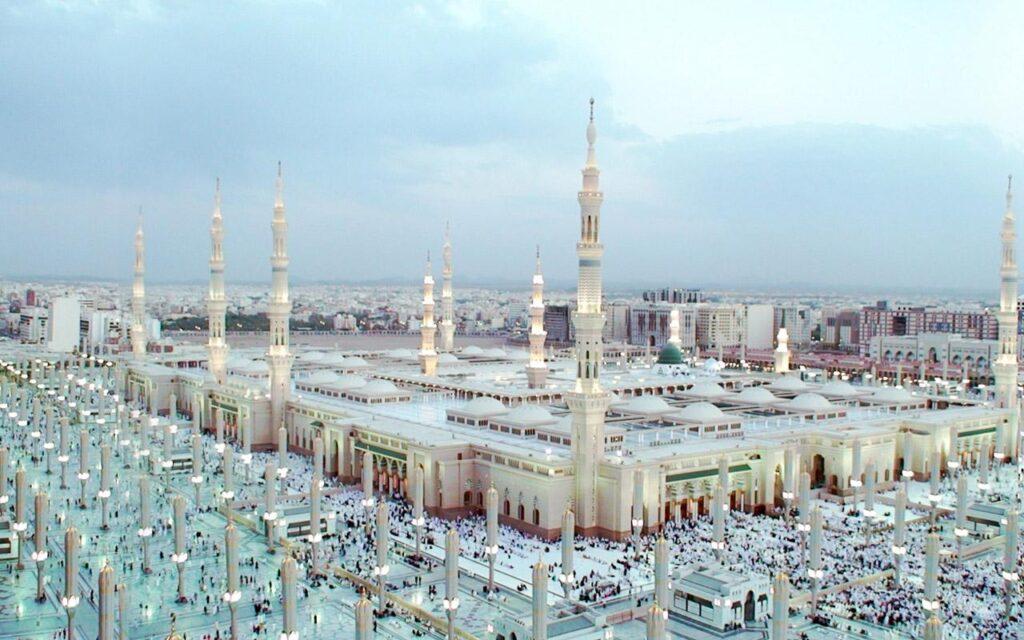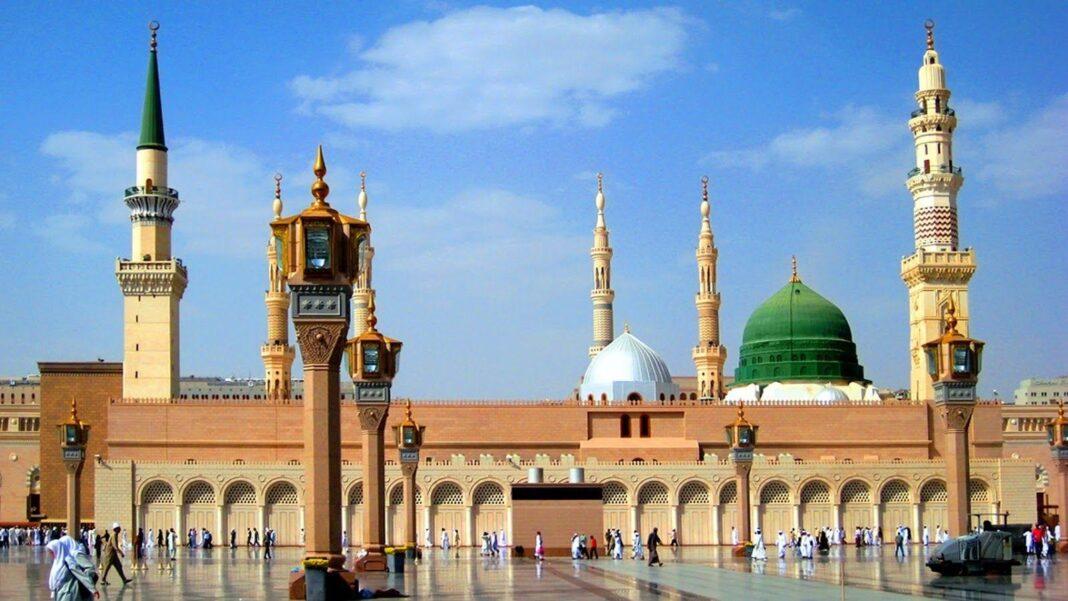The introduction of high-tech prayer mats at Masjid-e-Nabawi is a significant development that aims to enhance the prayer experience for millions of worshippers who visit there.
These high-tech prayer mats have been specifically designed to provide a seamless experience for the millions of worshippers who visit Masjid-e-Nabawi every year, making their prayer routine more convenient and efficient.
One of the key features of these high-tech prayer mats is the RFID system, which allows the authorities to monitor and manage the carpets more effectively. Each mat is embedded with a small RFID chip, which is linked to an electronic system. This system contains information about the manufacture date of the carpet, its use history, location within the mosque, and the timing of its last washing.
With this information, the authorities can easily track the condition of each mat and determine when it needs to be cleaned. This helps in maintaining the cleanliness and hygiene of the mosque, as mats that have been used extensively or are soiled can be identified and cleaned promptly, ensuring that worshippers have access to clean and well-maintained mats for their prayers.
In addition to facilitating the cleaning process, the RFID system also helps in managing the location of the mats within the mosque. With thousands of mats spread across the vast prayer area of Masjid-e-Nabawi, it can sometimes be challenging to locate a specific mat, especially during peak times when the mosque is crowded with worshippers. The RFID system allows the authorities to accurately track the location of each mat, making it easier to locate and retrieve mats that may have been misplaced or moved.
Furthermore, the RFID system also provides information about the manufacture date of the carpets. This information helps in identifying mats that may have exceeded their recommended lifespan and need to be replaced, ensuring that worshippers have access to mats that are in good condition and provide adequate comfort during prayers.
Another notable feature of these high-tech prayer mats is the inclusion of washing schedules. The RFID system keeps track of the timing of each mat’s last washing and can provide alerts when a mat is due for cleaning. This helps in maintaining the cleanliness of the mats and ensures that they are washed regularly, in accordance with the mosque’s hygiene standards.
The introduction of these high-tech prayer mats has brought several benefits to Masjid-e-Nabawi and its worshippers. Worshippers can now have access to clean and well-maintained mats for their prayers, ensuring a hygienic and comfortable experience. The authorities can efficiently manage the cleaning and maintenance of the mats, ensuring that they are in good condition and meet the mosque’s standards. The RFID system also helps in minimizing the chances of mats being misplaced or lost, making it easier for worshippers to locate the mats they have been using.
The introduction of these high-tech prayer mats is also a reflection of the increasing use of technology in modern Islamic practices. Technology has been widely adopted in various aspects of worship, from electronic Qur’an apps to digital prayer reminders. These high-tech prayer mats are another example of how technology is being utilized to enhance the spiritual experience of worshippers and streamline the management of religious facilities.

It is worth mentioning that the introduction of these high-tech prayer mats is in line with the efforts of the Kingdom of Saudi Arabia to modernize and improve the facilities and services provided to pilgrims and visitors to the Holy Mosques. The Saudi government has been investing heavily in infrastructure and technology to enhance the experience of pilgrims, and these high-tech prayer mats are part of these ongoing efforts.
Related posts: Pakistani Sikh Sardar Darshan Singh hosts Iftar for Muslims in Lahore
However, it is also important to consider potential challenges and concerns associated with the use of technology in religious practices. Some may argue that the use of technology in religious rituals may detract from the traditional and spiritual aspects of worship, and may even raise concerns about privacy and data security with the use of RFID systems.



